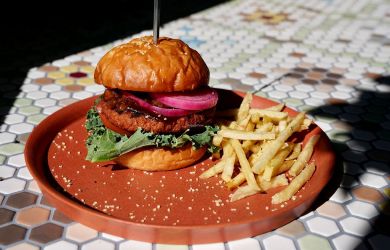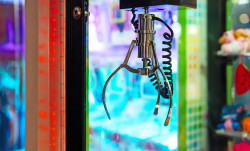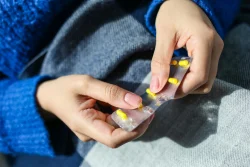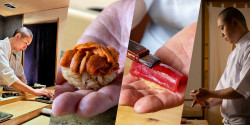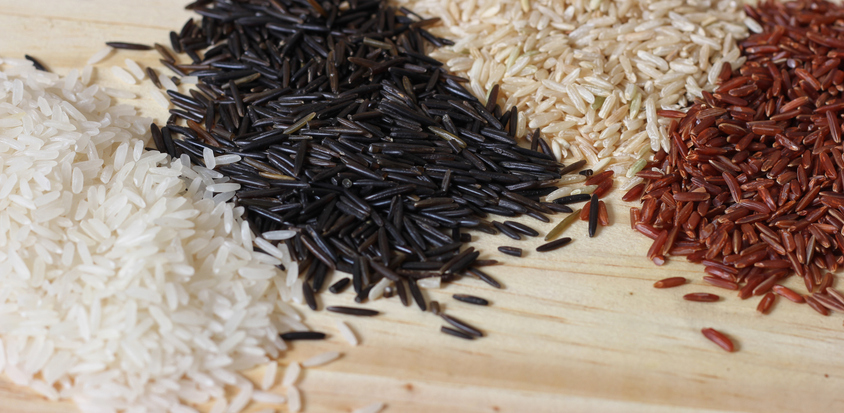
May 31, 2024
Health Supplements Under Scrutiny After Fermented Rice Fiasco
Demands for stricter food safety regulations
By Oliver Arlow
This page has been brought to you as a public service of the Yokohama Bluff Medical and Dental Clinic
Five deaths and the hospitalization of nearly 200 people in the six months since last September have been linked to dietary supplements containing red yeast rice and triggered demands for stricter safety regulations for food products with functional claims.
The products were manufactured by around 170 different companies that used “beni koji” red yeast rice provided by Kobayashi Pharmaceutical Co and were promoted as helping to reduce cholesterol. Tests on batches produced last year have revealed high levels of puberulic acid, a naturally occurring compound that is derived from blue mold and can be highly toxic.
Red yeast rice is the product of yeast grown on white rice and the powdered yeast-rice mixture is a dietary staple in east Asia that has also long been used in Chinese traditional medicines. Research has indicated that it is helpful in reducing cholesterol levels, although a report by the Mayo Clinic also details a number of potential side effects, including liver damage and muscle disorders.
The National Institute of Health Sciences is continuing to analyze the ingredients in the products and work continues to try to determine how the mold got into the manufacturing process.
Many questions remain to be answered and the scandal has cast a shadow over the entire dietary supplements sector, with questions asked of companies providing the raw ingredients, those producing the final products and government agencies that are supposed to monitor the safety and efficacy of items sold to the public.
Osaka-based Kobayashi Pharmaceutical has been fulsome in its apologies, with Executive Officer Yumi Nakagawa releasing a statement on May 10, apologizing for the “significant concerns and distress” in connection with the tainted products.
“We extend our prayers for the souls of those who have tragically passed away and offer our sincere condolences to their families,” the statement added.
Questions remain, nevertheless, over why the company only issued a voluntary recall of five products containing the tainted red yeast rice on March 22, approximately two months after the company discovered the link with health complaints. The complaints primarily involve damage to consumers’ kidney functions, according to the Japanese Society of Nephrology.
Media reports claimed that a man of 32 who was taking the supplements was diagnosed as having the kidney function of a man of between 80 and 90 years old.
Even after the company’s apology, it still took the ministry of health and officials of the government of Osaka City a further eight days to inspect the company’s manufacturing facilities in Osaka.
There is also growing pressure on the government about how defective products were sold and what measures are going to be taken to ensure this does not happen again.
The regulations covering food products that manufacturers claim have beneficial health effects were relaxed in 2015, only requiring that makers submit their own evaluations of safety and efficacy before they were released. The products in this category were not therefore screened by health authorities.
Under the Consumer Affairs Agency’s guidelines on food items with functional claims, it is “strongly desired” that products undergo quality control measures equivalent to those for medical products. No such measures were in place at Kobayashi Pharmaceutical’s Osaka plant.
The lax requirements, along with the fact that these products are available without the guidance of a doctor, have also led to concerns that they might lead to accidental overdoses among users.
The Mainichi newspaper reported that there are as many as 7,000 functional food products presently available in Japan, six times more than the food products that require government screening of their health properties and safety. The functional food market has grown to be worth an estimated ¥680 billion a year.
An April 8, 2024, editorial staff in the Mainichi demanded action, declaring, “It is unacceptable for health food products to end up ruining people’s health.”
The paper called for manufacturers to work with the government to implement effective safety measures, adding, “Once health problems arise, their repercussions can be enormous.”
